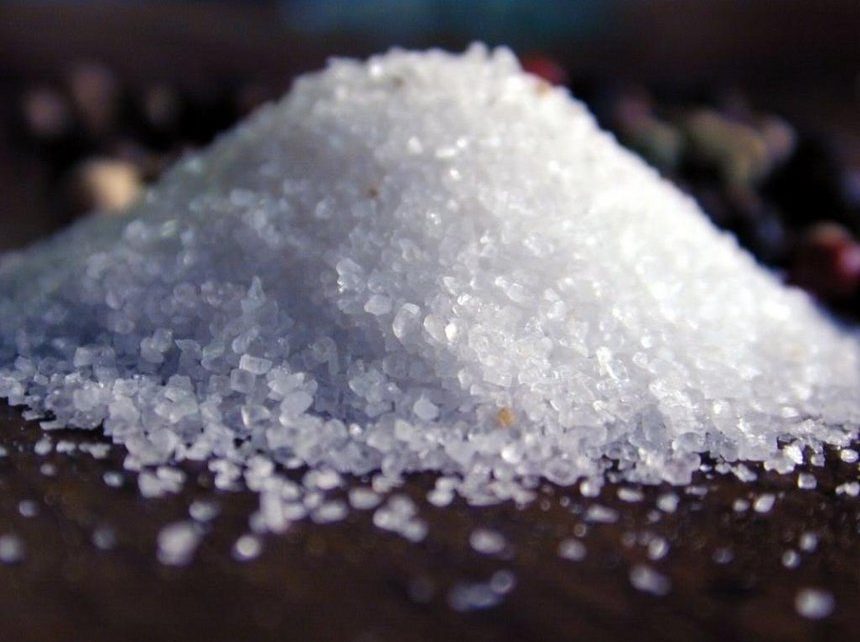Owners of salt companies are never exposed as part of Who Owns Kenya
By Camy Akinyi-Gecaga
Contributing Editor
Salt is one of the cheapest of home commodities. Its prices rarely change, retailing at Sh5 for decades. It is the one household item bachelors rarely worry about as a packet bought in January is still there-without smelling or expiring- by Christmas.
The poorest of Kenyan families can beg for sugar, unga, paraffin, but never salt-which has been escalating cases of high blood pressure, or hypertension, the commonest of cardiovascular diseases and which is fast becoming the biggest public health scares.
Never mind of Kenya’s over 40 million people, half have not had their blood pressure measured to ensure it’s the ideal 120/80Hmg, according to the Ministry of Health’s National Stepwise Survey carried out four years ago.
Even butcheries and fast food restaurants allow customers to use salt liberally on roast goat ribs, oily chips and cacogenic sausages. In fact, when Kenyans get jobs they use salaries on things they had admired all along: long drives to drink alcohol, eat choma, smoke-just the perfect mix for high blood pressure which starts rearing its ugly head in your 30s. Rarely in your carefree 20s.
Lancet Kenya, the eminent pathologists, notes that besides age, other factors which predispose people include race. Black people are prone to hypertension than white people. It is also genetic.
It is the age of ‘my car’ and with it long hours of idling in traffic
That is the age people start worrying where their former high schoolmates are in life. It is the age hearts are broken by lovers who will go straight to hell, inducing stress-another risk factor besides salt. It is the age of ‘my car’ and with it long hours of idling in traffic to and from a sedate office job.
It is the age of mistakes, regrets and reflections for which visits to the doctor increase in line with a medical card from a good employer. The optician suggests eye glasses, an early sign of high blood pressure which affects vision.
While cigarettes come with Surgeon’s General Warning boldly emblazoned on the pack, salt wrappers don’t have doctor’s warning against pinching and sprinkling direct on roast pork chops. With good steady diet comes obesity, another ingredient besides salt.
Salt is almost never advertised on billboards or prime time news. Adverts crooning about ‘hypertension free’ or ‘black pepper inside’ will never scroll on your smartphone or computer screen.
There has never been any ‘Salt Politics’ since Kenya’s independence
Owners and shareholders of salt companies are never exposed as part of Who Owns Kenya.
Unlike sugar, there are no salt wars pitting rival factories and suppliers. Politicians never make promises about reviving dying salt companies every election cycle. While sugar politics is a huge part of winning votes especially in Western Kenya, there has never been any ‘Salt Politics’ since independence in 1963.
Salt is there in our lives, there has never been a scarcity of salt. Yet salt is one among silent ingredients which worsen cases of high blood pressure-a disease which is hard to detect as it has no symptoms.
Salt, taken directly from the oily mbao at the nyama choma joint and onto to the meat tastes good. But it affects your kidneys which in turn affects the pressure of how blood is pumped into the heart in this way: The kidney is tasked with filtering toxins from your body. When the blood has too much sodium, the kidneys filter and dump them into your urine.
Though salt starts with the kidneys, it ends with the heart
Application of salt on chips, that outer skin of a grilled chicken, the goat head soup and indeed, the avocado tastes very sweet with salt, but done daily over the years gets the kidneys tired. Excess sodium thus remains trapped in your blood where it narrows vessels affecting the amount of pressure with which blood is pumped-hence high blood pressure.
Lancet Kenya notes that excess salt also leads to the body retaining fluids leading to high blood pressure.
Though salt starts with the kidneys, it ends with the heart which has to work extra harder to pump the blood and in the end wearing it out such that by 2018, high blood pressure accounted for about 50 percent of hospital admissions and 40 percent of deaths.
That is according to the Ministry of Health, where Chief Administrative Secretary, Rashid Aman contends that cardiovascular diseases are only second to infectious diseases as contributors to Kenya’s mortality burden and that “one in four Kenyans is living with hypertension” and that “90 percent of those undergoing treatment have not attained control of the disease.”
Besides salt, high blood pressure is made worse by smoking, excessive intake of alcohol. According to the Ministry of Health, about five million Kenyans consume some form of tobacco products while nine million have been keeping alcohol brewers in business-one million of those on a daily basis.
Add unhealthy diet and lack of physical exercises and high blood pressure cases can only worsen the risk of kidney ailments, stroke and heart attacks. Since nyama choma and fast foods seem to be hard habits to kick, just ensure the butcher puts the salt on the meat while roasting, while at home, eat food with salt which has been processed during cooking and slow your thumb and index finger on table salt.


u have good content.it’s always interesting to read ur stories
u have good content.it’s always interesting to read ur stories.Good job
Nice article, people should cut down on excessive salt consumption.